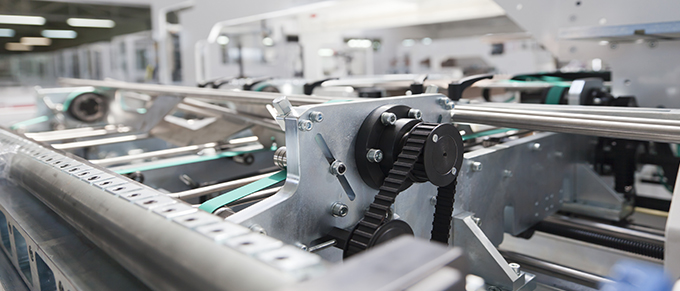When you think about it, packaging is essential for any product being sold. From storage to transport to the end user, package designers seek ways to advance the quality, functionality and safety of their products—all within compliance of regulatory guidelines. Many package designers would be surprised to discover that many of the activities they already are conducting qualify for valuable tax credits.
Read full story
Does your dairy company undertake activity intended to develop a new or improved product or process for yourself or your customer?
Read full story
Apparel manufacturing companies are also eligible for the research and development tax credit for any activities relating to creating new and or improving existing manufacturing processes.
Read full story
At first glance, it may seem unlikely that the poultry industry would have much in common with federal and state research and development (R&D) tax credits. After all, for years, R&D tax credits have been associated with large manufacturing, high-tech and medical companies. However, businesses engaged in the poultry industry are ripe with qualifying opportunities for valuable tax credits associated with the activities they conduct for improved products and/or processes.
Read full story
Consumer demands for fresher products made without artificial colors/flavors, preservatives, hydrogenated fats, or genetically modified ingredients (GMOs) have had a significant impact on the food science industry in recent years. These demands have made research and development a key factor in the productivity and growth of the food industry.
Read full story
If your company operates in the water treatment industry there is a good chance that you would benefit from the R&D credit.
Read full story
On July 4, 2025, President Trump signed the “One Big Beautiful Bill Act” (H.R. 1) into law. This sweeping legislation locks in lower tax rates, and restores some valuable incentives for business owners, including 100% Bonus Depreciation, immediate R&D expensing, and the Section 199A Qualified Business Income Deduction.
For business owners, this isn’t just good news–it’s a call to action. The new rules create opportunities to save big before the end of 2025, but only if your tax planning strategy is in place in time.
Read full story
According to a recent industry report, the U.S. pharmaceutical industry spends more than $100 billion annually on research and development (R&D) activities involving the development, design and testing of new or improved pharmaceutical drugs. Many of these activities qualify for federal and state R&D tax credits; is your company taking advantage of this opportunity to reinvest in the growth of your company?
Read full story
Software development is often overlooked when it comes to research and development (R&D) tax credits, which is rather ironic when you think about the innovation, creativity and invention that is such an intrinsic part of this industry. Any time your software company makes improvements to products or processes, there is a good chance that your activities may qualify for valuable R&D tax credits that can greatly reduce your tax burden.
Read full story
Environmental Engineers perform many activities on a daily basis and may be unaware they can qualify for valuable research and development (R&D) tax credits.
Read full story












